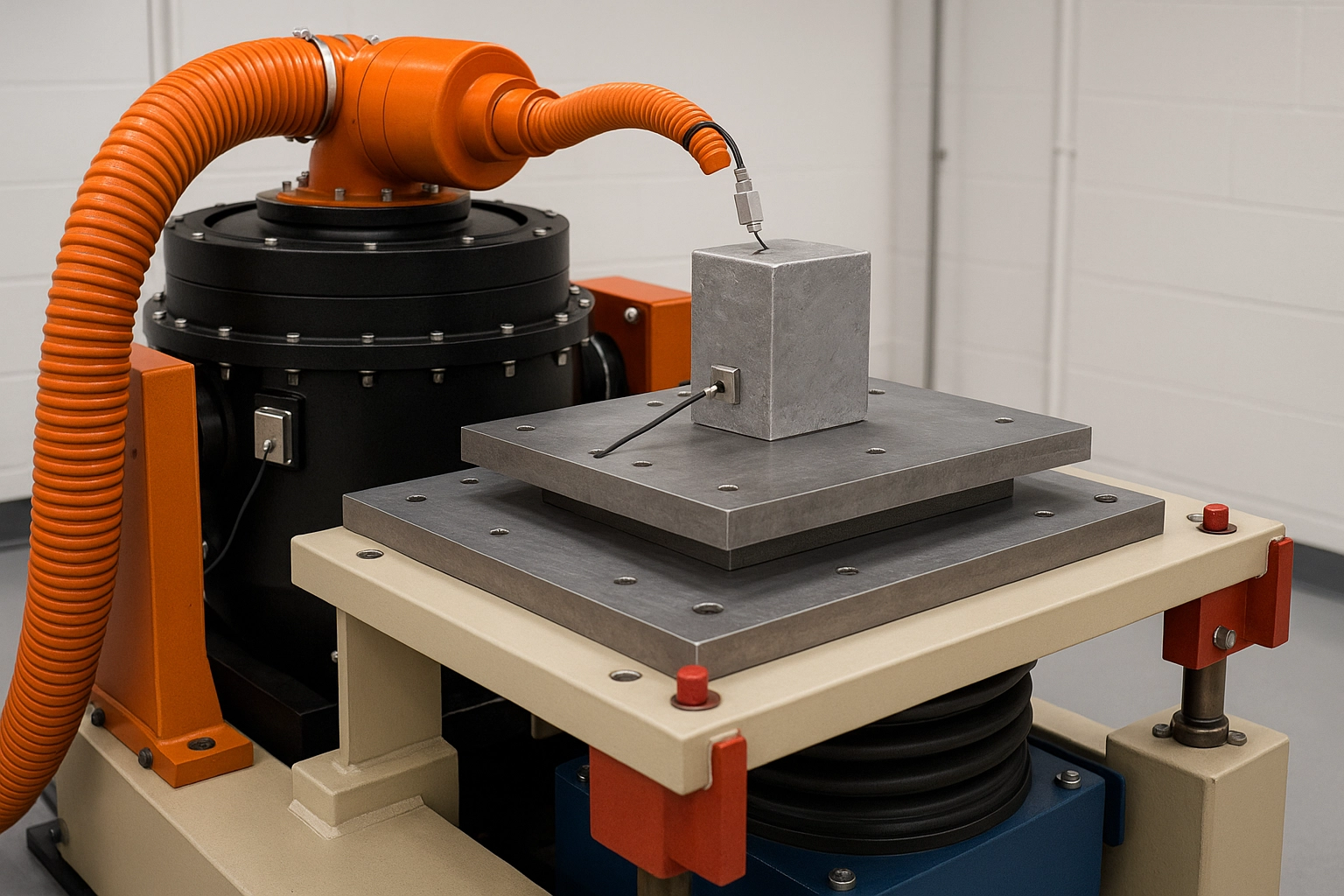VW 80101 Shock Test for Automotive Control Modules
The Volkswagen Group's Standard VW 80101 defines a critical test procedure that ensures the durability and reliability of automotive control modules under extreme shock conditions. This standard is vital in ensuring that components such as engine management systems, transmission controllers, and other electronic control units (ECUs) can withstand the harsh environments encountered during vehicle operation.
This test is not merely about passing or failing a component; it's about understanding how each module will behave under real-world shock scenarios. The standard specifies the use of controlled environmental chambers with programmable accelerometers to simulate road conditions, including potholes, sharp turns, and sudden stops.
The testing process begins by preparing the control modules according to VW 80101 specifications. Each unit undergoes a series of predefined shock events that closely mimic those experienced in actual use. The test setup includes a vibration table capable of generating controlled shock pulses at various frequencies and amplitudes, ensuring comprehensive exposure.
The acceptance criteria for the VW 80101 standard are stringent. A module must retain its functionality after testing without any failures or malfunctions. This means that post-test diagnostics must confirm proper operation and calibration. Failure to meet these criteria can lead to potential quality issues in vehicle performance, which could have significant financial and reputational impacts on the manufacturer.
Given the importance of this test, it is crucial for manufacturers to invest in robust testing facilities capable of replicating real-world conditions accurately. This includes not only the hardware but also the software used to program the shock profiles. Accurate simulation ensures that the test results are reliable and actionable.
The test protocol involves several stages, each designed to evaluate different aspects of module performance. For instance, static tests assess how modules behave under sustained shock conditions, while dynamic tests evaluate their response to rapid changes in environment. Both types of testing provide valuable insights into the robustness of control units.
Testing environments must also consider temperature variations and humidity levels, as these factors can significantly influence a module's performance. By incorporating these variables into the test setup, manufacturers can ensure that their products are not only shock-resistant but also resilient in varying environmental conditions.
The importance of this testing cannot be overstated. In an era where automotive technology is advancing rapidly, ensuring that control modules meet strict reliability standards is essential for maintaining consumer trust and regulatory compliance. Failure to adhere to such rigorous testing protocols could result in product recalls, costly repairs, or even legal action.
Why It Matters
The VW 80101 Shock Test is critical because it helps identify potential weaknesses in automotive control modules before they are deployed in vehicles. By subjecting these components to controlled shock conditions, engineers can pinpoint areas where improvements may be necessary, ensuring that the final product meets both functional and safety requirements.
Compliance with this standard not only enhances a manufacturer's reputation but also ensures adherence to international standards like ISO 9001 for quality management systems. This compliance is essential for maintaining customer confidence and regulatory approval across multiple jurisdictions.
The test results provide valuable data that can be used to refine design processes, optimize material selection, and enhance overall product reliability. By incorporating feedback from these tests into future iterations of control modules, manufacturers can significantly improve the longevity and performance of their products.
Moreover, adherence to VW 80101 helps prevent costly errors downstream in the manufacturing process by identifying issues early on. This proactive approach saves time and resources that would otherwise be spent rectifying problems after components have been installed in vehicles.
Industry Applications
| Application | Description |
|---|---|
| Engine Management Systems | Testing ensures the reliability of ECU performance under shock conditions to maintain optimal engine operation. |
| Transmission Controllers | Evaluates the durability of transmission control units against mechanical shocks to ensure smooth gear shifts. |
| Electronic Stability Control Systems | Verifies that these systems function correctly under shock loads, enhancing vehicle safety during sudden maneuvers. |
| Safety Airbag Controllers | Ensures the proper deployment of airbags in vehicles exposed to severe shocks or collisions. |
| Tire Pressure Monitoring Systems | Evaluates the integrity and accuracy of TPMS under varying shock conditions to prevent inflation inaccuracies. |
| Hill Descent Control Systems | Tests the stability control under shock impacts during steep descents to ensure safe vehicle operation. |
Environmental and Sustainability Contributions
- Reduces the likelihood of component failures in harsh environments, leading to fewer vehicle returns and recalls.
- Contributes to longer-lasting electronic components, reducing waste and the need for frequent replacements.
- Promotes the use of sustainable materials that can withstand extreme shock conditions without compromising performance.
- Enhances overall vehicle safety by ensuring that critical control modules operate reliably under all conditions.





